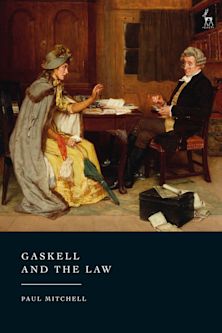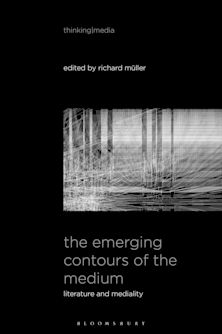- Home
- ACADEMIC
- Literary Studies
- Literary Studies - Other
- Spaces of Madness
You must sign in to add this item to your wishlist. Please sign in or create an account
Description
Spaces of Madness examines the role of the insane asylum in Argentine prose works published between 1889 and 2011. From a place of existential exile at the turn of the twentieth century to a symbolic representation of Argentine society during and immediately subsequent to the Dirty War, the figure of the asylum in Argentine literature has evolved along with the institution itself. The authors studied in Spaces of Madness include Manuel T. Podestá, Roberto Arlt, Leopoldo Marechal, Julio Cortázar, Adolfo Bioy Casares, Juan José Saer, Abelardo Castillo, Ricardo Piglia, and Luisa Valenzuela.
Table of Contents
Acknowledgments
Introduction
Chapter 1: Early Asylums: Manuel Podestá, Horacio Quiroga, and Roberto Arlt
Chapter 2: The Asylum in the Works of Julio Cortázar and Adolfo Bioy Casares
Chapter 3: The Schizophrenic Machine in Ricardo Piglia’s Asylum
Chapter 4: Luisa Valenzuela's Passage through the Asylum
Chapter 5: Juan José Saer's Committed Detective
Chapter 6: The Asylum as Juan José Saer's Argentine Founding Myth
Chapter 7: The Poet as Patient: The Literary Life of Jacobo Fijman
Conclusion
Works Cited
About the Author
Product details
| Published | Dec 17 2014 |
|---|---|
| Format | Ebook (PDF) |
| Edition | 1st |
| Extent | 226 |
| ISBN | 9798216326397 |
| Imprint | Lexington Books |
| Publisher | Bloomsbury Publishing |
About the contributors
Reviews
-
Rojas explores the function of medical madness, as a theme, in some Argentine prose works published between 1889 and 2011. She engages with Manuel T. Podestá, Roberto Artl, Leopoldo Marechal, Julio Cortázar, Adolfo Bioy Casares, Juan José Saer, Aberlardo Castillo, Ricardo Piglia, and Luisa Valenzuela to dislocate reason, sanity, and rationality in opposition to madness as an artistic metaphor of resistance to oppressive military dictatorships. Even though the study covers more than a century, it focuses on works dealing with Argentina's Dirty War—also known as Process of National Reorganization, the name used by the Argentine military government for a period of state terrorism from roughly 1974 to 1983. Building on Foucault and Derrida, Rojas looks at concepts of heterotopia, cure, and poison in studying how insanity functioned within Argentine society and literature. In addition, using as a model the Borda Hospital, the oldest and most important national psychiatric institute (which is located Buenos Aires), the book examines psychiatric hospitals and asylums and depicts them as alternative spaces of resistance against pseudo rational forces of violence and repression. Of particular value to those interested in Argentine prose. Summing Up: Recommended. Upper-division undergraduates and above.
Choice Reviews
-
The title of this well-researched and compelling book says it all... Spaces of Madness offers a compelling conspectus of how literary and non-literary discourse has shaped the evolution of the asylum in Argentinian society.
Bulletin of Spanish Studies
-
Concepts of madness constitute an ideological cluster of Argentine cultural production, and the Hospital Borda, the national psychiatric institute, is as much of an icon of Argentine society as the tango. Rojas’ study is the first attempt, thorough and intelligent, to explain how this is so.
David William Foster, Regents Professor of Spanish and Women and Gender Studies, Arizona State University
-
Against a background of historical change in the nature of the Argentine mental asylum from the late nineteenth to the early twenty-first century, Rojas provides a brilliant study of the portrayal of asylums in Argentine narrative. Covering a range of authors, she shows the evolution of attempts to uncover and deconstruct the idea of 'madness' and, crucially, to use the creative imagination to expose the cruelty often underlying the notion of reason. This is essential reading on the treatment of madness and irrationality in Argentina and on the development of modern Argentine literature.
Philip Swanson, University of Sheffield
-
Rojas uses the theme of madness in a way which goes beyond absurdism, in order to express Argentine writers’ hostility to what she calls "the harsh reality of rationality.” Her investigation of the theme turns out to be surprisingly rich, emerging in a wide range of major authors. Spaces of Madness: Insane Asylums in Argentine Narrative brings a new level of sophistication to criticism of recent Argentine fiction.
Donald Shaw, University of Virginia


































